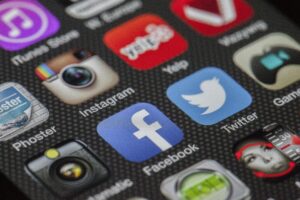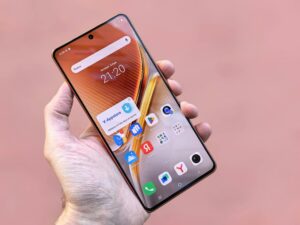What is Apps Technology?
In the digital world of today technology is an integral part of our everyday existence. what is apps technology has become one of the most important innovations among the many others. The invention, development and use of software applications for PCs tablets smartphones and other digital platforms is referred to as apps technology. These programs, also referred to as apps have many uses ranging from business operations and education to communication and entertainment.
It is impossible to exaggerate the significance of app technology. By providing services at their fingertips, it has revolutionized how individuals engage with the digital world. There is an app for everything, including ordering food, managing a business learning a new language and getting a cab. This essay examines the idea categories and uses benefits challenges and future of apps technology.
History and Evolution of Apps Technology
App history The late 20th century is when technology first appeared. The earliest apps were simple computer programs designed to carry out particular functions such word processing or spreadsheets. However the emergence of smartphones and other mobile devices significantly altered the environment.
When Apple released the iPhone in 2007 it completely changed the way people think about apps by launching the App Store in 2008. It opened up unlimited opportunities by enabling third-party developers to produce and distribute apps. Google quickly followed with the Android Market which is today known as the Google Play Store. There are now millions of apps accessible on multiple platforms due to the explosive growth in popularity of mobile apps.
what is apps technology has advanced over time to offer a variety of creative and adaptable digital experiences including wearable cloud based web and smart TV apps.

Types of Apps Technology
what is apps technology can be categorized into several types based on platform and purpose. Below are some of the most common types:
1. Mobile Applications
Mobile applications are made for tablets and smartphones. They are available for download and installation through app shops such as the Apple App Store and Google Play Spotify Uber Instagram and WhatsApp are a few examples.

2. Desktop Applications
These are computer programs that are installed on laptops and desktops. VLC Media Player Adobe Photoshop and Microsoft Word are well-known examples.
3. Web Applications
Web apps don’t need to be installed in order to function on web browsers. They contain programs like Gmail Canva and Google Docs and are reachable via URLs.
4. Hybrid Applications
The functionality of web apps and native mobile apps are combined in hybrid apps. They can use a single codebase to run on several platforms. Instagram and Twitter are two examples.
5. Cloud-Based Applications
Cloud apps provide online access to data and services and are dependent on cloud servers. Dropbox Google Drive and Microsoft 365 are a few examples.
6. Wearable Applications
These applications are made for wearable technology, including fitness trackers and smartwatches. Apple Health and Fitbit are two examples.
Uses of Apps Technology in Everyday Life
what is apps technology has become an essential part of modern lifestyles. Here’s how it benefits various aspects of daily life:
1. Communication
Global communication is now instantaneous and convenient because to social networking apps like Facebook Zoom and WhatsApp video calls and messaging.
2. Entertainment
Streaming services like Netflix YouTube and gaming apps offer endless entertainment options on mobile and smart devices.
3. Education
Online learning possibilities and tools for skill improvement are offered via educational programs such as Duolingo Coursera and Khan Academy.
4. Business and Productivity
Project collaboration, business management, and financial software like PayPal Trello and Slack have made things easier and made people more productive.
5. Health and Fitness
Apps that track fitness meditation and health such Apple Health Calm and MyFitnessPal encourage healthy living.
6. E-commerce
Users can purchase goods and services online from the comfort of their homes with the help of shopping applications like Amazon Daraz and eBay.
Advantages of Apps Technology
The rise of apps technology has brought numerous benefits to individuals and organizations alike:
1. Convenience
Apps provide easy access to information services and entertainment anytime anywhere.
2. Time-Saving
Apps speed up tasks such as online banking bill payments and booking appointments.
3. Cost-Effective
Many apps offer free or inexpensive services which reduces the demand for physical resources and infrastructure.
4. Customization
Users can personalize apps based on their preferences and needs.
5. Enhances Productivity
Productivity apps help manage schedules track tasks and improve work efficiency.
6. Better Communication
Instant messaging video conferencing and social media apps keep people connected globally.
Challenges and Limitations of Apps Technology
Despite its numerous advantages apps technology also faces certain challenges:
1. Security Concerns
Apps often store personal and financial data making them targets for cyberattacks and data breaches.
2. Device Compatibility
Not all apps are available on every device or platform limiting accessibility.
3. Privacy Issues
Many apps collect user data raising concerns about privacy and misuse of information.
4. Frequent Updates
Apps require regular updates to fix bugs and improve features which can be inconvenient for users.
5. Digital Addiction
Excessive app usage especially gaming and social media can lead to addiction and affect mental health.
The Future of Apps Technology
With fresh developments and trends transforming the digital ecosystem, the future of what is apps technology appears to be extremely bright. This is what to anticipate:
1. Artificial Intelligence (AI) Integration
AI-powered apps offering personalized experiences chatbots voice assistants and smart recommendations will become more common.
2. Augmented Reality (AR) and Virtual Reality (VR)
AR and VR apps will enhance gaming education real estate and shopping experiences.
3. 5G Connectivity
Faster internet speeds will improve app performance enable seamless video streaming and support advanced technologies.
4. Internet of Things (IoT) Integration
Apps will control smart home devices vehicles, and appliances, offering interconnected living environments.
5. Wearable and Health Apps
Health monitoring and fitness apps will evolve with better tracking and medical insights.
6. Progressive Web Apps (PWAs)
PWAs combine the benefits of web and mobile apps providing fast reliable and engaging experiences without installation.
Conclusion
what is app technology has revolutionized modern living by providing countless benefits and opportunities. Apps are essential to our everyday lives improving everything from communication and entertainment to streamlining business processes and healthcare. Although issues like security and privacy must be resolved even more creative solutions are anticipated in the future of what is app technology.
Apps will get smarter faster and more integrated into many facets of life as new technologies like and 5G continue to advance. As app technology affects the future of digital connection it’s an exciting time for users and developers alike.

FAQs
Q1: What is apps technology?
Apps technology refers to the development and use of software applications designed for digital platforms like smartphones tablets desktops and wearable devices.
Q2: What are the types of apps?
Common types include mobile apps desktop apps web apps hybrid apps cloud-based apps and wearable apps.
Q3: What are the benefits of apps technology?
Apps technology offers convenient time-saving cost-effectiveness customization improved communication and enhanced productivity.
Q4: Are there any disadvantages of apps technology?
Yes issues such as security risks privacy concerns device compatibility frequent updates and digital addiction are challenges faced by apps technology.
Q5: What is the future of apps technology?
The future involves AI integration applications 5G connectivity IoT devices health monitoring appsand progressive web apps.
